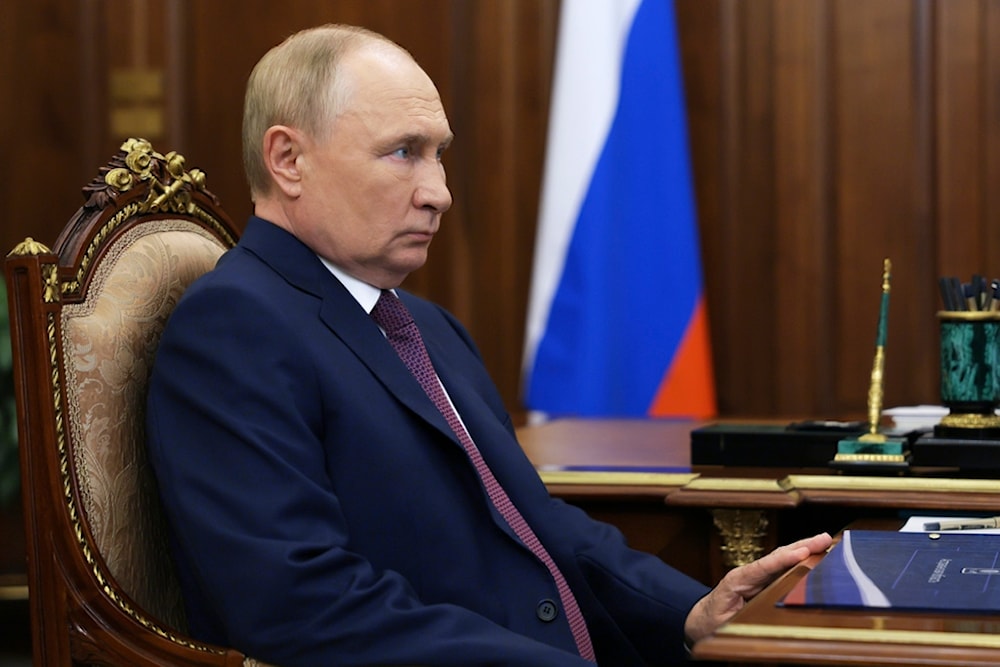ICC, Ukraine demand that Mongolia arrest Putin during visit
Mongolia is obligated, under the Rome Statute, to arrest President Putin during his visit to the country despite the ICC having no jurisdiction over Russia.
-

Russian President Vladimir Putin listens to Astrakhan region governor Igor Babushkin during their meeting at the Kremlin in Moscow, Russia, Tuesday, August 27, 2024. (AP)
Mongolia is obligated to arrest Russian President Vladimir Putin as a member state of the International Criminal Court (ICC), an ICC spokesperson said.
Putin is expected to visit Mongolia on Monday on the anniversary of a major World War II battle, which would expose him to the risk of arrest on an ICC arrest warrant. As an ICC member, Mongolia recognized the court and arrest warrant's jurisdiction, making Ulaanbaatar potentially liable if Putin is not detained.
ICC spokesperson Fadi el-Abdallah told the BBC that all signatories of the Rome Statute "have the obligation to cooperate in accordance with Chapter IX," including Mongolia.
"In case of non-cooperation, ICC judges may make a finding to that effect and inform the Assembly of States Parties of it. It is then for the Assembly to take any measure it deems appropriate," he added.
The Rome Statute, however, includes provisions for when international legal obligations could conflict when arresting an individual, such as breaching a treaty obligation with another country or violating the diplomatic immunity of a person or property of a third state.
Read more: ICC arrest warrants put international law to test: WaPo
Ukraine has also requested that Mongolia arrest Putin, the Kiev government stated.
However, according to Kremlin spokesperson Dmitry Peskov, Moscow is unconcerned with the arrest warrant and has settled the issue of Putin's visit to Mongolia separately and privately.
On March 17, the ICC issued a warrant for the arrest of Putin and Russian Presidential Commissioner for Children's Rights Maria Lvova-Belova, citing the alleged "unlawful transfer of population (children) from occupied areas of Ukraine to the Russian Federation."
Moscow has called the claims ridiculous, and has responded that the evacuation of civilians from combat zones was not a crime.
The Kremlin noted that Russia is not a party to the ICC, thus the court's decision is legally null and void for the country.
Russia previously slammed the ICC as a "puppet in the hands of the so-called collective West," affirming that the arrest warrant issued against Putin serves to put pressure on the country.

 2 Min Read
2 Min Read









